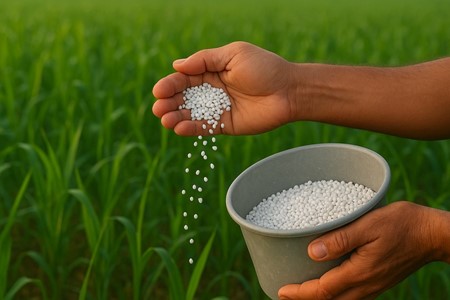
Agriculture is the backbone of the global economy, feeding billions of people and providing raw materials for industries. However, to sustain growing populations and changing climates, farmers need reliable tools to improve crop yield, soil health, and pest management. This is where the chemical industry plays a critical role. From fertilizers that enrich the soil to crop protection solutions that safeguard harvests, the chemical industry is deeply intertwined with modern farming practices.
1. Fertilizers for Higher Crop Yields
One of the most significant contributions of the chemical industry to agriculture is the development of fertilizers. Fertilizers supply essential nutrients like nitrogen, phosphorus, and potassium, which are crucial for plant growth. Without fertilizers, soil often cannot provide enough nutrients to sustain high yields, especially with repeated cropping cycles.
-
Nitrogen-based fertilizers improve leaf growth and protein content.
-
Phosphate fertilizers help with root development and flowering.
-
Potassium fertilizers enhance overall plant health and disease resistance.
Balanced fertilization ensures that farmers can meet the demands of food security while maintaining soil productivity.
2. Crop Protection and Pest Control
Pests, weeds, and diseases can cause devastating losses to crops. The chemical industry provides solutions such as pesticides, herbicides, and fungicides that help farmers protect their fields.
-
Pesticides reduce insect-related damage.
-
Herbicides help control weeds that compete with crops for nutrients.
-
Fungicides protect plants from harmful fungi and diseases.
Responsible use of these chemicals ensures higher productivity while safeguarding harvest quality.
3. Soil and Water Management
Chemicals also play a role in improving soil structure and water retention. Products like soil conditioners, micronutrients, and wetting agents help enhance soil fertility and water use efficiency. Chelating agents such as EDTA or its cost-effective alternatives improve the availability of micronutrients like iron and zinc, preventing deficiencies in crops.
4. Post-Harvest Preservation
The chemical industry supports agriculture beyond cultivation. Post-harvest chemicals are used to extend the shelf life of fruits, vegetables, and grains by preventing spoilage and controlling microbial growth. This reduces food wastage and ensures that crops reach consumers in good condition.
5. Sustainable Agriculture Through Innovation
Modern chemical research is focused on creating more sustainable agricultural solutions. Innovations include:
-
Slow-release fertilizers that reduce nutrient loss and environmental impact.
-
Biodegradable pesticides that minimize residues.
-
Biostimulants that enhance crop resilience against climate stress.
These advancements align the chemical industry with global efforts toward sustainable farming.
Conclusion
The partnership between agriculture and the chemical industry is vital for global food security. Fertilizers, crop protection agents, and soil enhancers developed by the chemical sector have transformed farming into a more productive and efficient system. With ongoing innovation, the industry is moving toward eco-friendly and sustainable practices that not only support farmers but also protect the environment.
In essence, the chemical industry is not just supporting agriculture—it is helping to secure the future of food for generations to come.